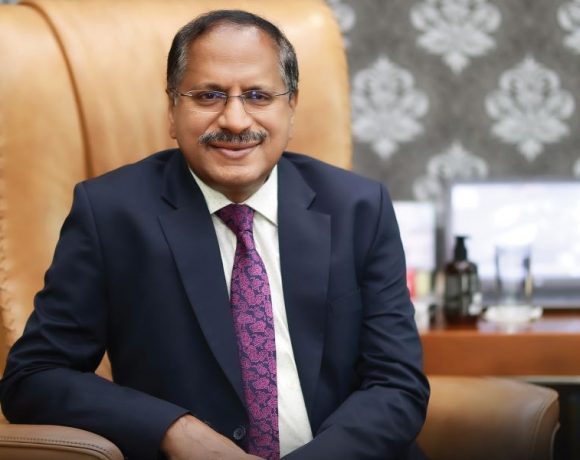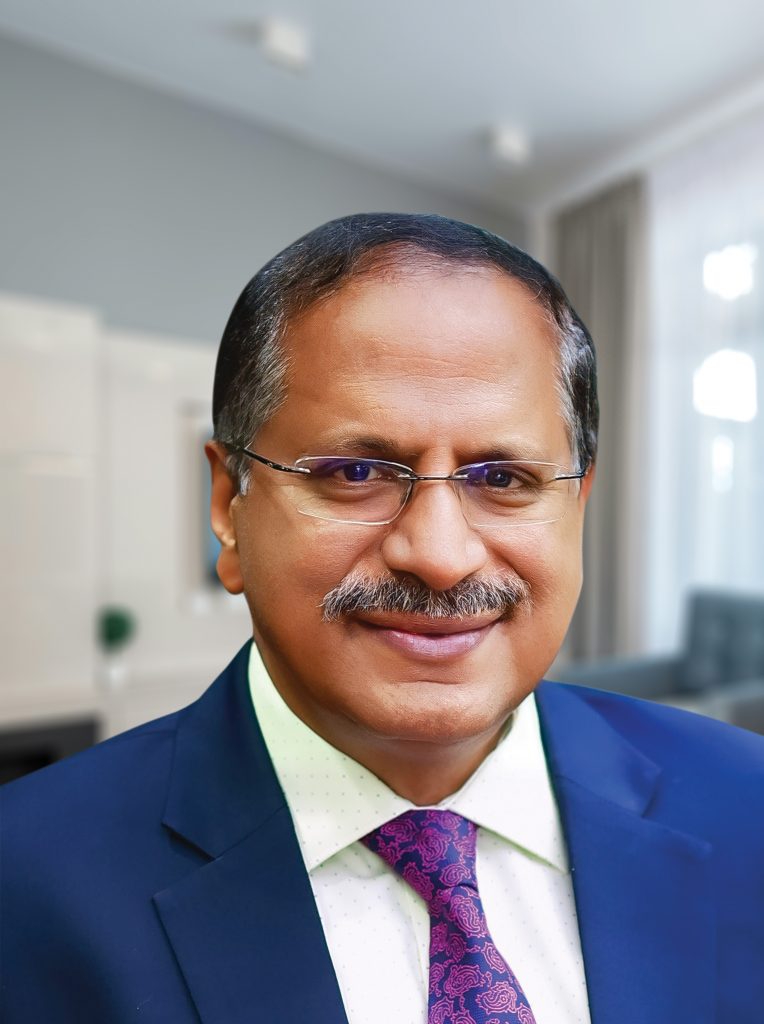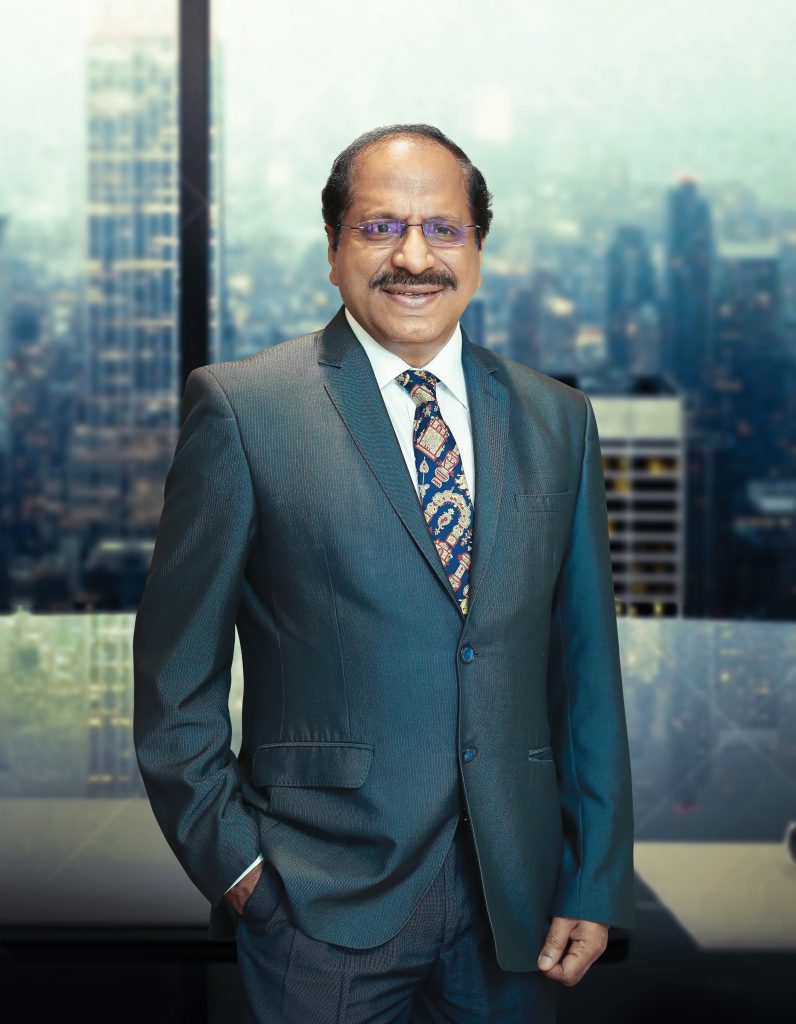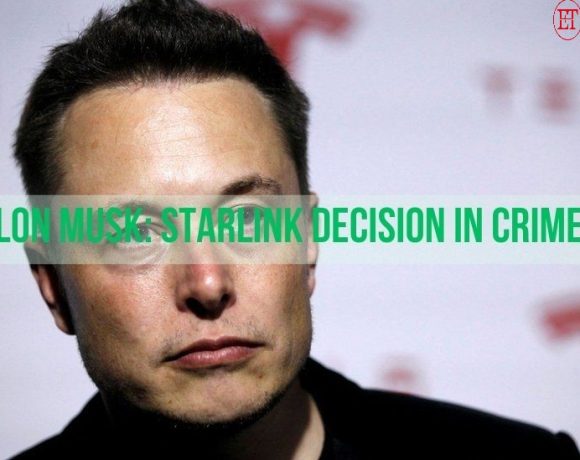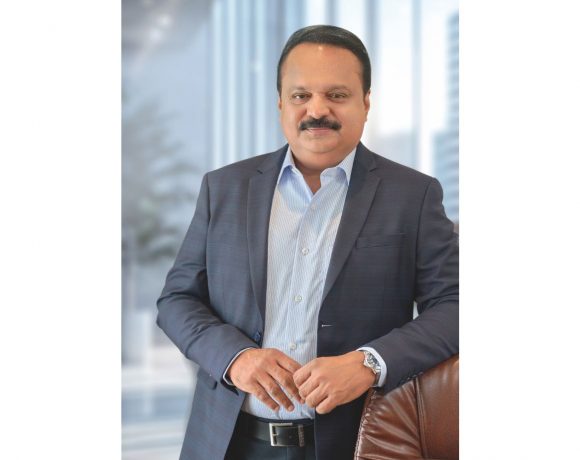
Amid Kerala’s digital transformation, Oxygen: The Digital Expert has been at the forefront, delivering cutting-edge digital brands to consumers while ensuring their post-sale needs and aspirations are fully met. With a legacy spanning 25 years, the company has built an unshakeable bond of trust with over 7 million customers. In a candid discussion, CEO Shijo K. Thomas offers a glimpse into the brand’s extraordinary journey and its ambitious plans for the future.
Can you tell us about your entry into the world of business?
My journey into entrepreneurship was shaped by both circumstance and passion. After completing a diploma in computer engineering, I began my career at a private firm in Ernakulam. But life had other plans—when my mother required medical care in 1999, I had to step away from my job and return to my hometown, Kanjirappally in the Kottayam district.
Faced with the need for an alternative livelihood, I turned to what I knew best—computers. That’s how Ozone Systems was born: a humble 50-square-foot space where I began assembling and selling personal computers. It was just me and one other staff member, working in a time when the idea of a personal computer was still new to most households. Back then, computers were largely the domain of institutions, and assembling one was far from easy.
We would import spare parts, build the systems ourselves, and deliver them to customers. Installing an operating system was a saga of its own—Windows 3.1 came on 31 floppy disks, and one faulty disk could derail the entire process. Fungus on a single floppy meant starting from scratch. It took days to build and set up a computer, but the challenge was part of the thrill.
Today, technology has evolved dramatically—computers arrive pre-loaded and ready to use. But back then, it was about patience, precision, and passion. What began as a modest one-room setup in Kanjirappally slowly but steadily grew, paving the way for our expansion into Kottayam and beyond.
What inspired the name “Oxygen”?
The idea behind the name was to choose something distinctive and unique, without an obvious link to technology, and then build a strong brand around it. Since our first venture was named Ozone Systems, it felt natural to evolve the name to Oxygen. We also found inspiration in the chemical transformation from ozone (O₃) to oxygen (O₂). Beyond that, in today’s world, digital products have become as essential as oxygen, making the name even more fitting and meaningful for our vision.
“Trust is our hot ticket to success” – How has this philosophy helped shape the growth of the Oxygen Group?
From the very beginning, trust has been our top priority. We place great emphasis on after-sales service. The relationship with a customer starts when they purchase a product, especially electronic goods, and it continues beyond the sale. When computers were not as common in the early days, customers had many doubts about their functionality. It was also the time when the internet was just starting to gain traction. We used to receive constant service calls, even at night, and we always attended them.
To gain customer trust, selling only high-quality products is crucial. In our early days, the grey market was very active in this sector. However, from the beginning until now, we have only provided company-authorised spare parts, ensuring customers receive the warranty they deserve. We have never compromised on the quality.
By holding firmly to our principle that “Trust is our hot ticket to success”, we have retained customers who have been with us since 1999. Ever since we rebranded from Ozone to Oxygen, every showroom has had an Oxygen Care service center. These units are our own, set up purely to support customers without focusing on profit.
By maintaining product quality and providing excellent after-sales service, we have continued our journey alongside our customers. This is why, even in our 25th year, we continue to thrive successfully. Hence, “Trust is our hot ticket to success.”
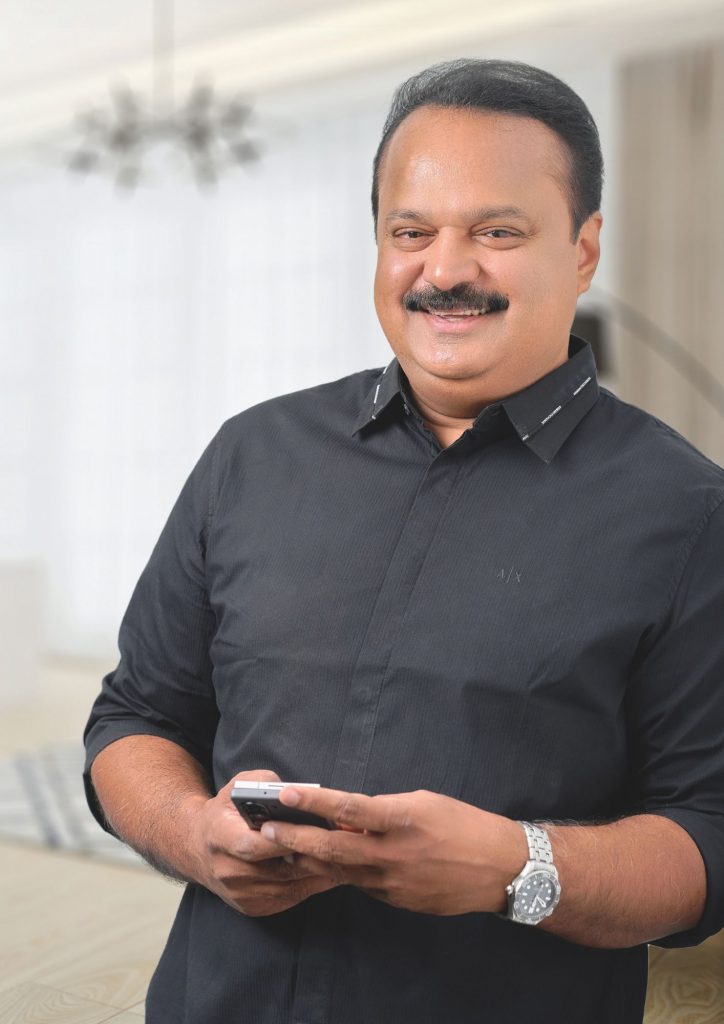
Can you explain the phenomenal growth from a 50-square-foot shop to 44 showrooms across Kerala?
As I mentioned earlier, that era marked the beginning of digitalisation. It was a time when computers started becoming a necessity. Recognising this demand and establishing a firm presence in the market was the key to our growth.
At one point, I met with a major accident and was bedridden for six months. During that period, I realised an important truth—no individual can build and sustain a large enterprise alone. However, if there is a trustworthy and energetic team alongside, success can be achieved. Understanding this, I gradually built a strong team. Instead of focusing solely on highly educated individuals, I prioritised hiring those who were deeply committed and willing to lead our venture selflessly.
Another crucial factor was effectively marketing our products and services. From the beginning, we have paid significant attention to continuously informing both customers and potential customers about our offerings. As we scaled up, we computerised and implemented automation. Today, all aspects of our business operate through systematic automation, which has greatly contributed to our growth. Our ability to recognise and adapt to changing times has been a major factor in our business expansion.
Can you elaborate on ‘Adapting to Change’?
Adapting to change is one of the most critical aspects of running a successful and sustainable business. If a business fails to embrace evolving trends, its very survival can be at risk. For instance, take Nokia, which was once a leader in mobile phones. Its reluctance to adopt the Android operating system led to its decline. Similarly, Kodak was once the number-one company in the camera industry, but when digital cameras emerged, the company collapsed because it failed to adapt.
In our case, we started by assembling personal computers. When laptops became popular, we shifted our focus accordingly. We were the first in Kerala to introduce stores where customers could experience computers and laptops firsthand with a “touch-and-feel” experience. That store became a benchmark, and many others followed the same model.
Similarly, when the smartphone revolution arrived in 2010, we incorporated smartphones into our product category. This brought a massive transformation to our business. Today, nearly 45% of our revenue comes from smartphone sales. If we had not included smartphones in our product line-up back then, our growth would not have been as significant.
We also adapted to changes in the home appliances industry, embracing digitalisation and AI-driven products. Our goal has been to bring all kinds of electronic products under one roof. Now, we are eagerly preparing for the changes the future will bring.
How do you balance innovation and core values?
As a business grows from 10 crore to 100 crore, and then to `1,000 crore, maintaining the right infrastructure, systems, and a tech-driven backend becomes essential. Technology can propel a company to new heights when implemented effectively, surpassing individual efforts. Additionally, it’s crucial that everyone in leadership embraces a growth mindset. The moment one thinks, “This is enough,” the growth trajectory starts to flatten. Building a robust growth engine, analyzing data, and making real-time adjustments ensure that innovation and expansion remain in harmony.
What led to the launch of your own TV brand, ‘Oxyview’?
Through our constant engagement with customers in our stores, we recognized a gap in the market—a need for a high-quality television with essential features, offered at an affordable price. This insight inspired the creation of Oxyview, a private-label brand that allows us to offer direct service and warranty. The goal was simple: to bring smart technology to the masses. The response has been overwhelmingly positive, often surpassing supply due to strong demand.
The success of Oxyview has opened doors for expansion into other home appliances. We are set to launch Oxyview air conditioners in the upcoming season, followed by small appliances. In addition, large-scale manufacturing is taking place in India, with strong support from the Indian government’s “Make in India” initiative.
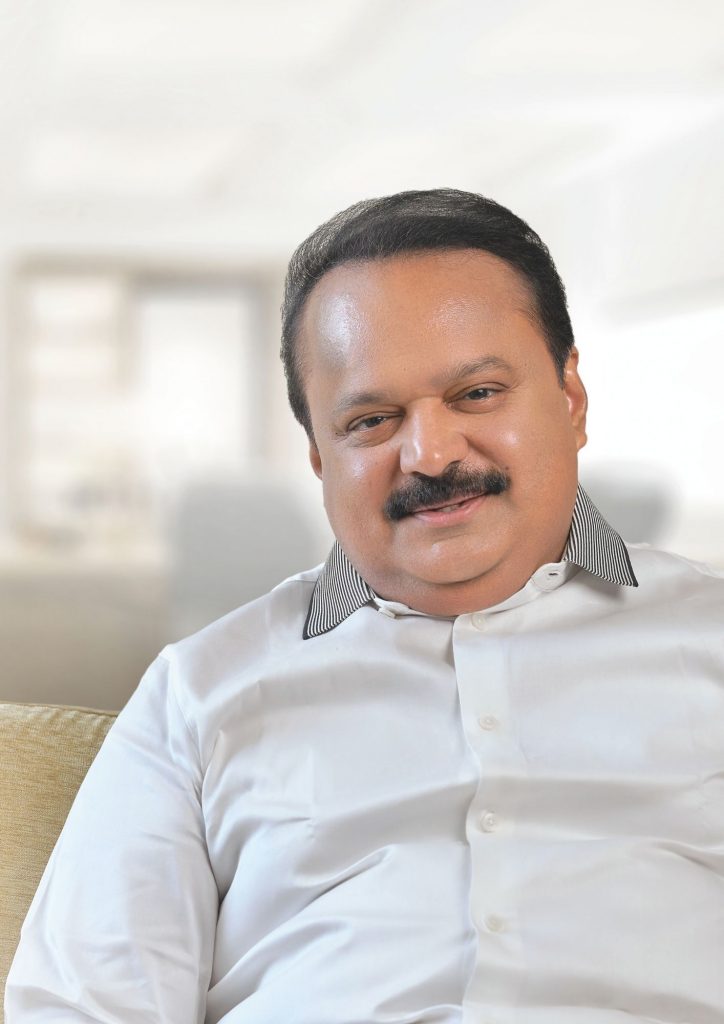
Are there plans to expand Oxygen at the national or international level?
Yes, national expansion efforts are already in progress, and they will be realised soon. However, there are currently no immediate plans for international expansion.
What are the essential qualities of an entrepreneur?
In any business, the most important aspect is to execute innovative ideas creatively. This ability is the first and foremost requirement for an entrepreneur. They must be strong enough to face challenges and crises, take the initiative in every situation, and have the adaptability to adjust to changing circumstances. They should also be capable of creating the necessary resources for the business.
Above all, an entrepreneur must be patient. Success does not come overnight—it requires consistent efforts and perseverance. Many young entrepreneurs and start-ups enter this field thinking, “I can’t work under someone else, so I’ll start my own business.” However, their rise and fall often happen as quickly as fireflies flashing in the dark. Some keep shifting from one venture to another because they lack the patience to endure losses.
In my case, for the first five years, I had no profits—I faced multiple financial setbacks. However, patience and persistence helped me reach where I am today.
Every business typically goes through five stages, known as the “5 S’s”:
1. Struggle – The initial phase involves battling various challenges.
2. Survival – This is when a business begins to manage its expenses.
3. Stability – At this stage, profits start coming in.
4. Success – This phase involves establishing a strong second-line leadership team that manages systems and processes.
5. Scale-up – The final stage, where the business grows beyond the entrepreneur’s direct involvement.
What challenges do you face in running a large retail chain?
The retail landscape has dramatically changed with the rise of e-commerce, creating intense price-driven competition. The focus has shifted from delivering value to customers to simply offering the lowest price. In the past, factors like after-sales service and customer satisfaction were central to the business model. Today, many consumers prioritize price over long-term value, which is a concerning trend. Businesses that rely solely on price cuts will struggle to maintain sustainable growth and customer loyalty in the long run. The key to success lies in balancing fair pricing with exceptional after-sales service and an overall positive customer experience.
If Oxygen were to start a new business beyond retail, which industry would you choose?
If we were to diversify beyond retail, we would enter the field of digital product manufacturing. The potential for digital products is boundless, especially with the rapid growth of technologies like Artificial Intelligence (AI) and Robotics. These innovations are already reshaping everyday life, with AI integrated into everything from smartphones to home appliances. To stay ahead, we would focus on creating AI-driven and robotics-based digital products that cater to the ever-evolving needs of consumers.
How would you sum up Oxygen’s success in three words?
Oxygen’s success is built on three core values:
- Democracy – Every decision is made collaboratively, with input from the entire team.
- Socialism – We foster an egalitarian culture, where every team member, regardless of their role, is valued equally.
- Secularism – Our internal operations are guided by fairness, transparency, and integrity.
Additionally, we believe in being transparent with our customers, consistently delivering high-quality products. From our early days of computer assembly to embracing modern technologies, we’ve always kept the public informed. Lastly, we see wealth as a societal asset, one that should be reinvested for the betterment of society in various meaningful ways.
Pic Courtesy: Pegasus Photography

